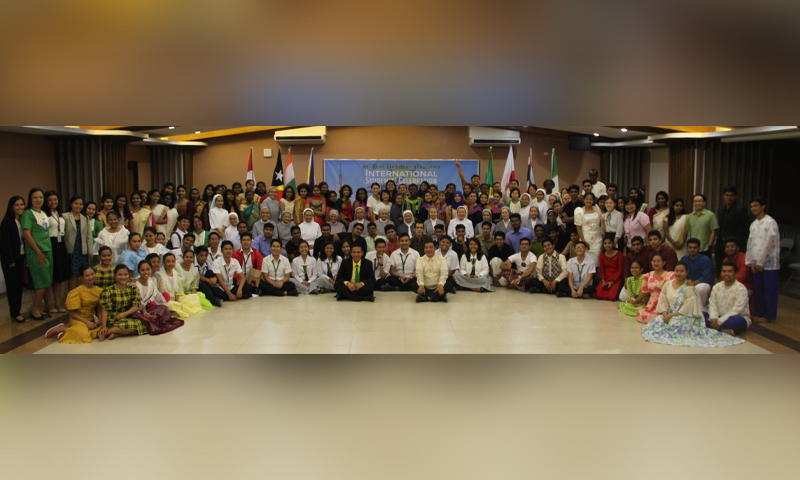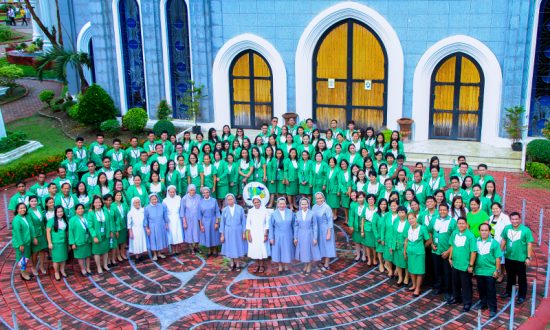A University should be a place of light and learning. With time, an ideal university should polish its methods and practices to present itself as a beacon of progress and excellent learning. One such university is St. Paul University Philippines (SPUP). Established by the Sisters of St. Paul of Chartres (SPC) on May 10, 1907, as Colegio de San Pablo, St. Paul University Philippines, for more than a century, has proven its tradition of excellence and untarnished reputation of providing quality, Catholic, Paulinian education.
The first University and Catholic University in Cagayan Valley in 1982, SPUP has seen the changing industry requirements, the rise of global citizens, and the speed at which technology has been progressing. These experiences have equipped SPUP with a vast knowledge reserve, thus enabling it to adapt its pedagogy to the dynamic demands of the Industrial Revolution 4.0. Apart from Basic Education (K to 12), SPUP currently offers 80+ courses under various departments such as School of Arts, Sciences & Teacher Education, School of Business, Accountancy and Hospitality Management, School of Information Technology & Engineering, School of Nursing and Allied Health Sciences, School of Medicine, Graduate School, and Center for Adult Learning and Continuing Professional Education.
Artfully Progressing with Time and Exigence
SPUP has ventured into the inclusion of new technology, such as Coding Education that includes Robotics, AI, IoT, Automation, and Genomics among others, Foreign Languages (French, Mandarin, Spanish etc), Augmented Reality, and Service Learning into the curriculum, coupled with character formation and student development programs. SPUP has also ingeniously weaved the 17 Sustainable Development Goals of the United Nations into the student study programs and student development activities. “SPUP has crafted graduate attributes as a goal of the University in ensuring that the students will be industry- and work-ready and that they will be able to perform their tasks as future professionals. Their actions will always be anchored on the Paulinian Core Values,” says Sr. Merceditas Ang, SPC, Ph.D., University President, St. Paul University Philippines.
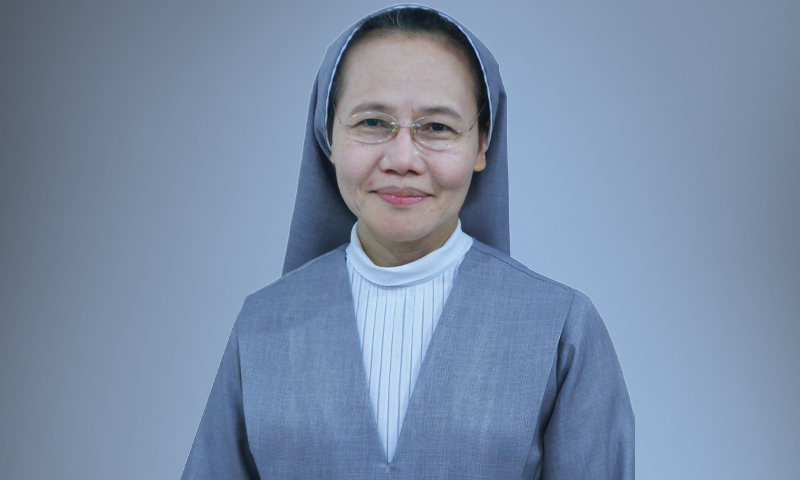
In SPUP creativity and innovation are advanced through technology-based, research-driven, value-laden and student-centred learning. Students are provided with opportunities and experiences of showcasing their ingenuity through their projects, creative outputs, and performance-based tasks. SPUP is further equipped with laboratories, incubation and simulation centres where students can display or demonstrate their creative works. SPUP also provides for an authentic learning experience towards the development of learners who are computational and creative thinkers, innovative designers, communicators, knowledge constructors, and global collaborators.
A testament to SPUP’s salubrious upbringing of its students is that SPUP was featured as Outstanding University in the Philippines by the Association of Accredited Schools of Business International (AASBI) in December 2019. SPUP houses learning spaces that are both strategically placed within university buildings and outside, in the lush open gardens. Similarly, study areas are provided in St. Paul Home (Student Residences), which also serve as discussion corners. To determine the students’ academic and personality development needs, SPUP Guidance Counselors hold regular sessions with them.
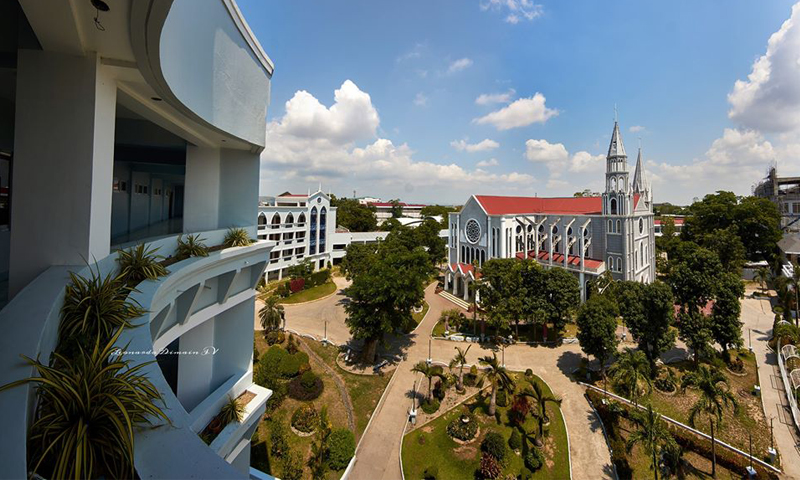
Furthermore, student advising is strictly observed in SPUP, where a faculty adviser is assigned to a group of students. Together with the Academic Deans and Program Coordinators, these advisers monitor the development of the students academically from their first day up to graduation. This brings us to the faculty team at SPUP who are every bit as resourceful and learnt as SPUP is. Professional Development is anchored on the thrust of the University to ensure quality teaching and learning. SPUP offers scholarship assistance to faculty members aspiring for their graduate degrees and facilitates the grant of scholarship from other agencies or institutions.
Moreover, SPUP continuously sends its faculty members to various seminars, workshops, training and conferences aligned with their respective fields of expertise in the Philippines and abroad. Several faculty members hold officers’ positions in various national professional organizations, while some are (blind) peer-reviewers and editors in recognized international and national journal publications. Many professors and instructors are also national trainers in various fields tapped by the Commission on Higher Education, Department of Education, Department of Health and Department of Social Welfare and Development, among others. In this case, the faculty members can share new knowledge and current trends in education and research to the students and colleagues.
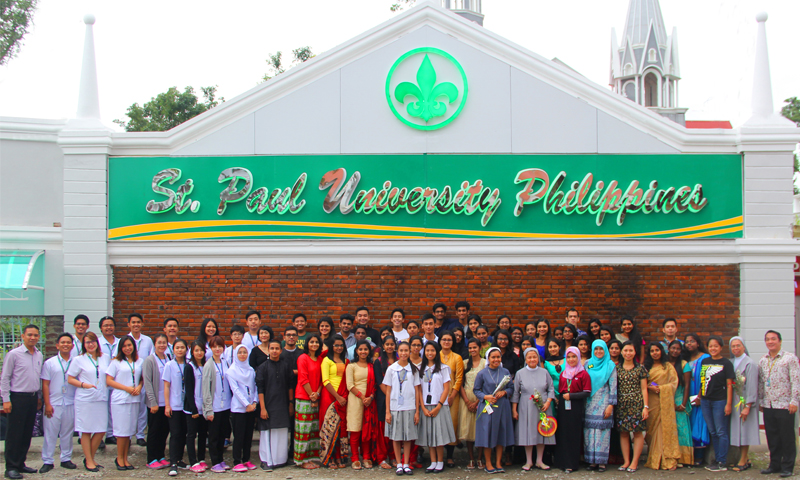
Masterful Collaborations and Linkages
Thanks to its repute of being a seat of excellent higher learning, SPUP has the fortune of partnering with various international, national, and local institutions, organizations (governmental and non-governmental), and industries thus providing varied opportunities for the students in the different fields of studies. SPUP’s industry linkage spans from educational institutions, 5-star hotels, major business enterprises, government offices, IT and Engineering firms, to hospitals and pharmaceutical companies – all of which are contributory to SPUP students’ well-being and development of their full potentials as professionals. At present, SPUP has 153 international linkage partners from 15 countries and various local and international educational institutions and industries in the Philippines.
The industry partnership and collaboration of SPUP are taken very seriously not only to satisfy the UN-SDGs but also to ensure ample exposure to SPUP graduates. “The Child ProTECT (Child Protection Towards Enabling Childhood Development and Community Transformation) project of the Community Development Center, in partnership with Child Fund International on child education and total development; programs and projects, in partnership with the Department of Health (DOH), the Commission on Higher Education (CHED), the Department of Education (DepEd), the Department of Social Welfare and Development (DSWD), the Department of Science and Technology (DOST), and other government agencies of the Republic of the Philippines, and, partnership activities with the World Council for Curriculum and Instruction, National Association of UNESCO Clubs in the Philippines and the Japanese Embassy in the Philippines, all account to the fulfillment of the 17 SDGs in terms of accomplished and on-going projects of, by, and at SPUP,” says Allan Peejay M. Lappay, Ph.D., Director, Alumni, External Relations and Advocacies.
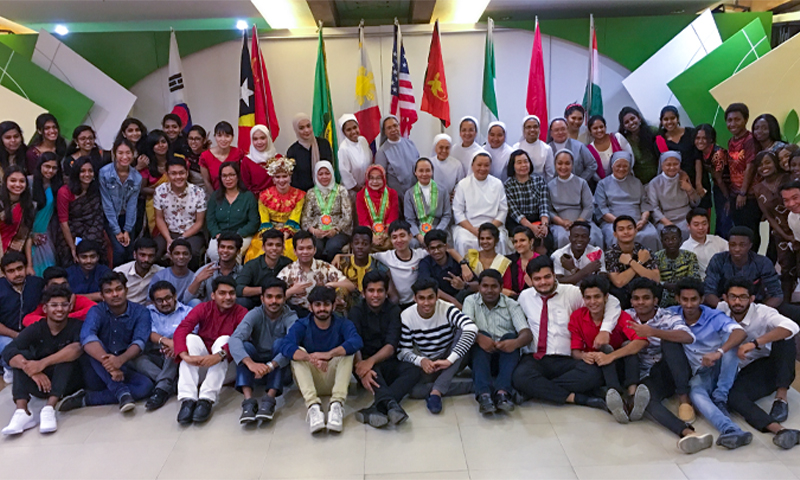
Currently an active member of the World Council for Curriculum and Instruction (WCCI), the Association of Southeast and East Asia Catholic Colleges and Universities (ASEACCU), and the Association of Christian Universities and Colleges in Asia (ACUCA), SPUP is also one of the 12 universities in the Philippines selected by the Commission on Higher Education (CHED) as participant in the ASEAN International Mobility for Students (AIMS) Programme of SEAMEO-RIHED and showcased by CHED in the Asia-Pacific Association for International Education (APAIE) Conferences and Exhibits. Moreover, SPUP is the first and the only university in the Philippines accepted as a member of the China-ASEAN Innovation and Entrepreneurship in Education Alliance of Universities.
Education to One, Education to All
SPUP’s phenomenal growth to showcase itself as a seat of learning has led to the University welcoming quite a few foreign applicants. In fact, for the past five years, there has been a tremendous increase in the number of international students from 11 in the first semester of AY 2014-2015 to 160 in the first semester of AY 2019-2020, enrolled in various programs, from basic education to graduate school, as well as several inbound students for short period language course, internship, cultural immersions and as full-time credit transfer exchange students for 1 semester. Another reason why SPUP stands as a preferred destination for foreign aspiring graduates is the admirable activities of SPUP’s International Relations Office. Right from assisting the international students in various ways, starting from dealing with application and admission, quarantine/health and VISA procedures and annual reporting with the Bureau of Immigration of the Philippines, to holding general orientation at the start of every academic year for all foreign students and organizing sessions per group or per country, depending on the needs of the students, the department does an admirable job to ensure all students feel welcome at the university.
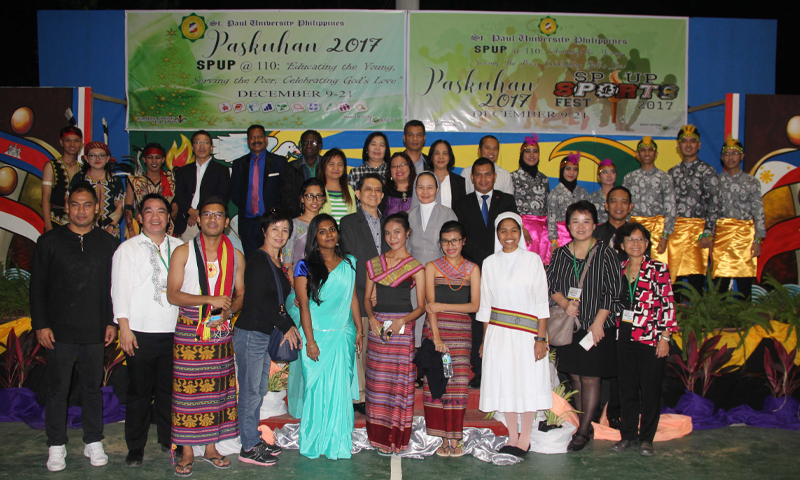
Moreover, the International Students Organization also plays its part to help foreign students have representation in university activities. An International Students Integration Program is conducted every year where the international students showcase their cultural dances, cuisines, and significant artworks. Most of the international students stay at the St. Paul Home (University Hostel) where they are given full orientation, guidance and mentoring by staff and their fellow students, local and international.
As once mentioned before, SPUP enjoys fruitful linkages with the corporate and educational community, thus offering cultural and industry immersion programs for students and faculty members in different countries, such as the USA, Japan, Australia, Malaysia, Thailand, Indonesia, Singapore, China, Taiwan, and India as well as with various major industries in the Philippines. “Since SPUP is an emerging international intercultural university, the international students are immersed with the mainstream of students, so they mingle with local students and create a buddy system. Some international students are now student leaders, artists, and members of the University’s varsity teams in various sports events,” says Jeremy Godofredo C. Morales, Ph.D., Director, International Relations.
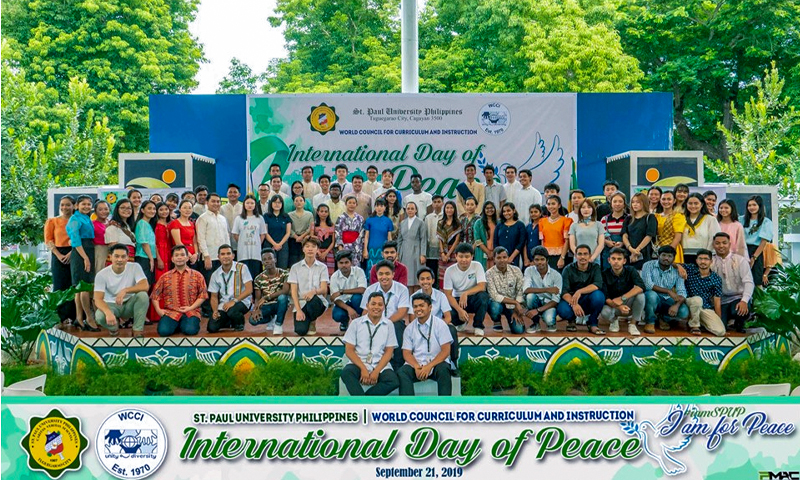
Championing Independence Since The 90s
It is commendable that SPUP understood the importance of entrepreneurship as early as the 90s when it first formed the Community Development Center (CDC). It was also a social enterprise that aimed at empowering women and small community groups of the local village. The Center helped the then blacksmiths through micro-financing, which, fast forward today, is the common indigenous job in the area.
Moving forward, SPUP has created a strategic roadmap to engage its members (faculty, staff, and learners) to survive and thrive in a highly globalized and technology-driven in the era of Industrial Revolution 4.0. Endeavouring for holistic and transformative education, SPUP plans to polish its resources on Coding Education, Artificial Intelligence and Robotics, use of Augmented Reality books, offering of Foreign language and ASEAN studies, Global Citizenship Education, enhancement of e-learning modules and platform of delivery, conduct of national and international conferences and symposia, research publication, partnership and network in the academe and industry sectors, and, international immersions and exposures. SPUP, thanks to its open mind and 20/20 vision, has been a lighthouse for the education community for over a century. It is a safe bet to comment that it will continue to uphold this responsibility for decades to come.
